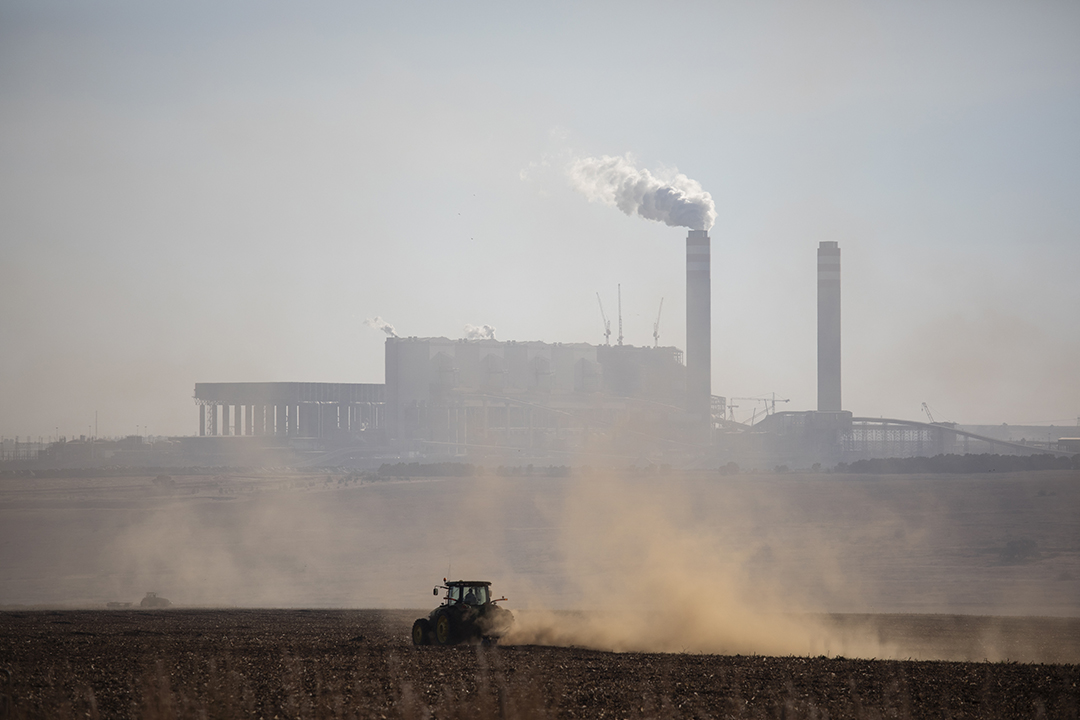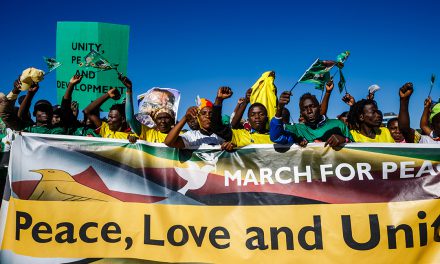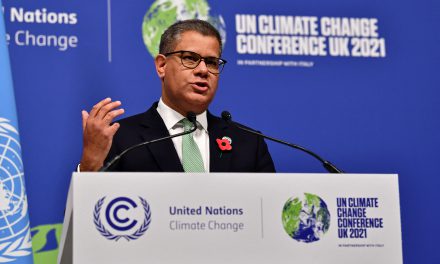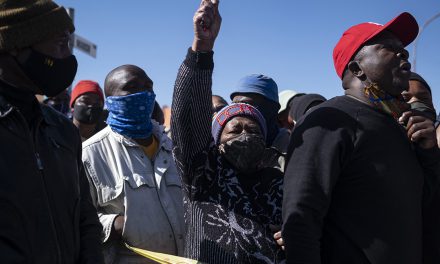This month, the Fraser Institute, a Canadian policy think-tank, released the 2021 Annual Survey of Mining Companies. The survey assesses how mineral endowments and public policy factors such as taxation and the regulatory environment affect exploration investment attractiveness. South Africa, the Democratic Republic of Congo, and Zimbabwe were ranked amongst the least attractive jurisdictions for mining investment in the world. While the above African countries ranked in the bottom tier, Morocco was the only African country that ranked in the top 10 of the Investment Attractiveness Index.

The Kusile power station in eMalahleni, part of the Highveld region turned over to mines and power plants, on June 13, 2019. South Africa has placed a heavy bet on coal for its development — a fuel that is plentiful, cheap and locally-sourced. But campaign groups say health and climate costs are high. Photo:Wikus de Wet/AFP
The survey results come at a time where the international investment community has its eyes fixed on the upcoming Investing in African Mining Indaba (MI), an annual mining conference, dedicated to the successful capitalisation and development of mining interests in Africa. To this end, the conference aims to connect African leaders, investors, and mining companies to establish investment opportunities for economic and social development enabled by African mining sectors.
This year’s MI theme is: Evolution of African: Investing in the Energy Transition, ESG and the Economies. In the last decade, the energy transition and Environmental, Social and Governance (ESG) factors have gained pre-eminence on the global stage. Historically, ESG considerations have largely been ignored because unethical firms would externalise social and environmental costs with impunity. Deterrents against such behaviour were either absent or insufficient. This led to widescale environmental degradation and the abuse of human rights.
Due to growing external pressures today, however, businesses are being compelled to integrate ESG principles into day-to-day business operations and into their long-term investment strategies. Part of the objective is to compel companies to internalise those costs that were historically externalised (offloaded onto the communities which could least afford it). Among these external pressures are increasing climate change concerns and overall corporate social responsibility. The latest Intergovernmental Panel on Climate Change report, for instance, highlights that temperatures are likely to rise more than 3ºC, with catastrophic consequences. As a result, many industries, especially the extractives industries, have come under greater scrutiny from investors and affected communities.
This has generated significant ESG risks for the sector. For instance, a coal mine in Kromdraaispruit in the Mpumalanga Province of South Africa decanted millions of litres of acidic water into the adjacent river system in February this year. This resulted in tons of fish being wiped out in the process. Subsequently, the acid mine drainage (AMD) poured into the Saalboomspruit, Wilge River and the Olifants River before reaching the Loskop Dam. The acidic water spill covered a 58km stretch and irreparably damaged the aquatic life of that region. The coal mine was reportedly also due to close, as it was old and disused. Beyond the negative externalities imposed onto the community and the environment, this case also exposes the poor conduct associated with many mine closure and rehabilitation processes.
Given the above-ground risks highlighted above, integrating ESG practices into daily business operations (as a critical risk-mitigating strategy) should be on the agenda of all global mining conferences. It is therefore encouraging that the stated focus of this year’s Mining Indaba is to mainstream ESG priorities into how the mining industry thinks about its future.
Over the past two years, the global economy has been negatively impacted by the COVID-19 pandemic. The World Economic Outlook Update released by the International Monetary Fund in January this year stated that global growth is expected to drop from 5.9 in 2021 to 4.4% in 2022, and 3.8% the following year. This largely reflects forecast markdowns in two of the largest economies – United States and China, respectively. However, adverse health outcomes appear likely to decline as vaccination rates improve. Evidently, the COVID-19 pandemic has had an interconnected effect on the global economy, world trade and cross-border investment.
Decelerating growth is increasingly matched by pressure to adhere to ESG standards. Capital allocation for mining projects, for instance, increasingly requires ESG standards to be incorporated into regulatory frameworks. However, until now ESG adherence has meant different things to different investors and there have been no consistently applied standards. In response, the Sustainable Finance Disclosure Regulation (SFDR), published by the European Supervisory Authorities, was formulated as a set of European Union rules which aims to make the sustainability profile of funds more comparable and better understood by end-investors. Importantly, it focuses on pre-defined metrics for assessing ESG outcomes of the investment process. With more emphasis on disclosure, the purpose of the regulation is to better identify any harmful impact made by investee companies.
Despite the negative global trends, FDI in the mining sector continues to hold great potential to finance infrastructure development and to build towards sustainable economic growth and poverty reduction, especially in mineral-wealthy African jurisdictions. However, as outlined earlier, the Fraser Institute Survey ranked key African mining jurisdictions among the least attractive for mining investment based on the following key (non-exhaustive) policy factors:
- Uncertainty concerning the administration, interpretation, or enforcement of existing mining regulations
- Uncertainty concerning environmental regulations, which includes:
- Stability of regulations, consistency and timelines of regulatory process, regulations not based on science
- Taxation regime, which includes:
- Personal, corporate, payroll, capital, and complexity of tax compliance
- Socioeconomic agreements and community development conditions
- Labour regulations
The survey questionnaire was answered by managers and executives of mining companies who are familiar with the regulatory environment of the relevant mining jurisdictions. However, one of the methodological limitations of the survey noted in the past is a relatively low response rate from the respective managers and executives.
Nonetheless, having efficient and streamlined mining application processes is a key driving factor that will restore investor confidence in the African mining sector. The South African Mineral Resources Administration System (Samrad), an online mining and prospecting rights application system, for instance, has not been efficient, nor has it provided the transparency required to build trust in the sector, especially with stakeholders that are most affected by mining projects.
To this end, it is critical to have a suitable standard electronic file formatting system that will publish full Samrad details of all accepted and granted mining and prospecting rights. In addition, the Department of Mineral Resources and Energy must develop the system in a way that it provides the exact status of the application backlog, progress being made in clearing per province and application type.
Ultimately, to boost investor confidence, a stable and reliable regulatory environment, along with mining policies that are aligned with ESG considerations, is required. At the centre of it all is the implementation of good governance practices that will enable transparent and accountable mechanisms that give investors the confidence to finance responsible mining on the African continent.
This article first appeared in the Mail & Guardian, here.
[activecampaign form=1]








